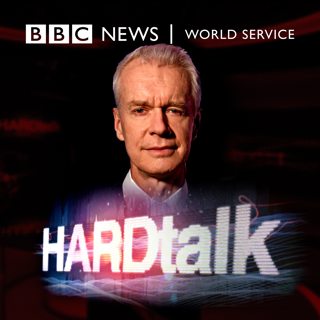
John McCain - US Senator
Can the Republican Party find a presidential candidate capable of turfing Barack Obama out of office? The battle to win the Republican nomination is proving to be protracted and brutal, and right now the main beneficiary appears to be the man currently occupying the White House. Senator John McCain is the Republican candidate who ran against Obama and lost four years ago. Is the struggle to find a convincing Presidential nominee indicative of a Republican Party that has lost its way?(Image: John McCain. Credit: Getty Images)
13 Feb 201223min

John Fahey - President, World Anti-Doping Agency
Anti-doping authorities in Britain will carry out more than 7,000 drugs tests on athletes at the London Olympics and Paralympics later this year, more than at any previous games. They're also warning potential cheats that the 2012 Games will be the 'riskiest yet' with a greater chance of them getting caught.But, despite the rhetoric, the British Olympic Association also faces the overturning of its lifetime Olympic ban for any athlete banned for more than six months for a doping offence. The World Anti-Doping Agency says the BOA's stance is not compliant with its code. What message does this send in an Olympic year, and what can WADA do to combat what it sees as the growing role of organised crime in the trafficking of performance enhancing drugs? Tim Franks speaks to WADA's President, John Fahey.
10 Feb 201223min

Hilde Johnson - UN Special Rep in South Sudan
South Sudan became independent in July 2011 after waging a five-decade war against the north in what was Africa's longest running civil war. But secession has brought neither peace, stability nor prosperity, despite the country's vast oil wealth. Hostilities with its northern neighbour leave the two countries teetering on the brink of war, and ethnic clashes and rivalries between southern tribes have left many thousands dead.Zeinab Badawi speaks to the UN head of mission for South Sudan, Hilde Johnson. Is the country effectively already a failed state?(Image: Victims of ethnic violence in Jonglei, South Sudan. Credit: Associated Press)
8 Feb 201223min

05/02/2012 GMT
In-depth, hard-hitting interviews with newsworthy personalities.
6 Feb 201223min

Mary King - British Olympic Equestrian
Mary King is a sportswoman like few others. She's 50-years-old and still at the pinnacle of her sport. That sport is three-day eventing. Next year, she's hoping to collect her first Olympic gold medal - at what will be her sixth games. But is equestrianism - as its enthusiasts insist - the toughest sport in the world?Or is it less a test of the person - more of the horse - and a preserve of the rich?(Image: Mary King. Credit: Press Association)
3 Feb 201223min

Dr Gene Sharp - Political Theorist
Gene Sharp is a political thinker whose influence is now spoken of in same breath as Mahatma Gandhi and Martin Luther King. But he is no platform speaker or figurehead at a demonstration. Rather, a quietly spoken political philosopher who's been writing about non-violent struggle for 50 years. What's changed is that his most celebrated pamphlet - From Dictatorship to Democracy - is now grabbing attention around the world. He's been hailed as having helped mould protest movements from Burma to Serbia to Egypt. What is it that Gene Sharp has been able to unlock?(Image: People flash the V (peace) sign during a demonstration. Credit: AFP/Getty Images)
1 Feb 201223min

Edwin Cameron - South African Constitutional Court Judge
Living as an openly gay man in socially conservative Africa is hard enough, but Edwin Cameron went even further.He was the first public official in South Africa to reveal his HIV positive status. Nelson Mandela appointed him a judge and he now serves on South Africa's Constitutional Court. There remains high levels of homophobia on the continent - why are gay activists like Cameron losing the argument?
30 Jan 201223min

Gus O'Donnell - Former Head of UK Civil Service
Gus O'Donnell has been at the heart of government in Britain for 30 years, working closely with the last four British prime ministers. He was John Major's press secretary; under Tony Blair he took on the top job in the civil service, a position he held when Gordon Brown took over. And that meant that at the last election he was the one overseeing the negotiations for Britain's first full coalition government since the Second World War. After nearly two years with David Cameron as prime minister he has now retired. And with his former role being split into three jobs - does even the man who signed his letters by his initials G.O.D - recognise he was just too powerful?
27 Jan 201223min






















